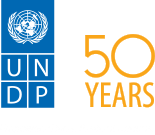
New York /April 14 – A new UN publication was launched today to enable governments, public-health officials, programme managers, NGOs and health workers to create and improve HIV prevention programmes for transgender people.
The new publication,Implementing comprehensive HIV prevention programmes with transgender people captures issues such as the need to empower communities of transgender people; address the stigma, discrimination and violence that they face; provide comprehensive health-care services that are accessible and acceptable to transgender people; and manage programmes.
Known informally as the TRANSIT (transgender implementation tool), the publication was developed with contributions from over 90 experts from around the world, including many transgender people.
A key feature of the tool is examples of promising practices drawn from programmes around the world, showing how they have tackled challenges and found creative solutions to programming in environments with limited resources, or where legal or social obstacles make it especially difficult to provide services to transgender people.
“The case examples show that it can be done,” said Clifton Cortez, Team Leader, Gender, Key Populations and LGBTI of the HIV, Health and Development Group at UNDP. “Around the world there are organizations, big or small, often led by transgender people, that are finding ways to help similar people protect their health and their rights. Not every solution will work in all circumstances, but we hope these examples will provide ideas and encouragement.”
“While most low- and middle-income countries have developed national HIV programmes, in most places especially transgender women remain at disproportionate risk of infection with HIV,” said JoAnne Keatley, co-chair of International Reference Group on Transgender Women and HIV/AIDS and Director of the Center of Excellence for Transgender Health at the University of California, San Francisco. “Discrimination, violence and criminalization deter transgender people from getting the services they need to be healthy and stay healthy. This tool helps planners put into action comprehensive programmes across the whole spectrum.”
“Community empowerment is foundational to the tool,” added Keatley. “Our communities know best what services they need and how these should be delivered. Empowering communities is a way to make services more effective and cost-efficient.”
The authors of the publication hope it will also be of use to international funding agencies, health policy-makers and advocates. TRANSIT follows the publication of a similar tool for HIV and STI programmes with sex workers in 2013, and a tool focused on men who have sex with men in 2015. An implementation tool for programmes with people who inject drugs is currently being developed.
The new publication launched today follows on from the guidelines on HIV prevention, diagnosis, treatment and care that was published by WHO in 2014. “Where the WHO guidelines describe the ‘what’ of the services that transgender people need, this tool explains the ‘how’,” added Cortez.
Copy : http://www.undp.org/
Copyright © All right reserved to pahichan.com Site By: Sobij.